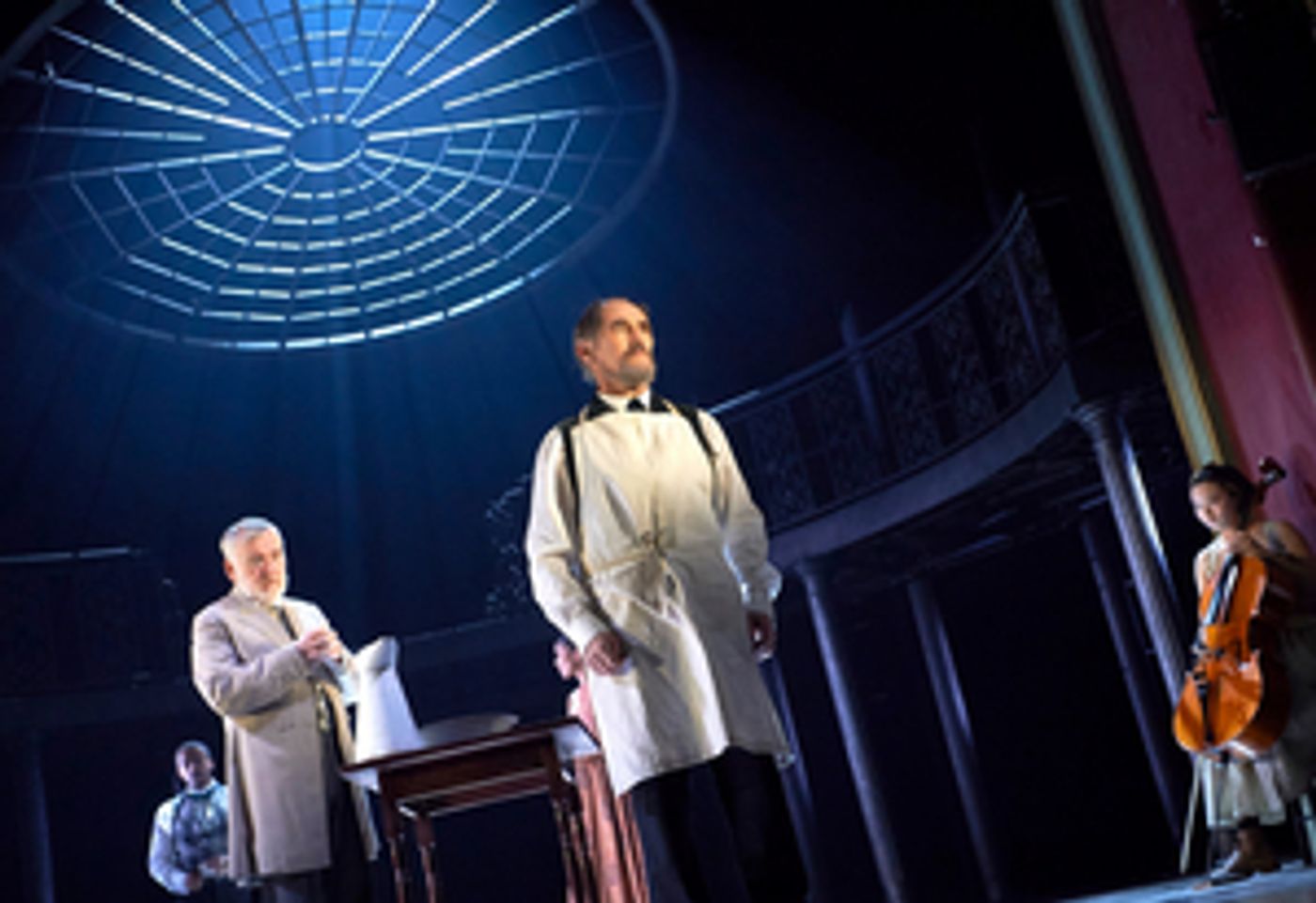Review: DR SEMMELWEIS, Bristol Old Vic
Mark Rylance makes his debut at the Bristol Old Vic

![]()
"Doctors must not carry their ghosts," advises Johann Klein to his impatient assistant Dr Ignaz Semmelweis, a 19th-century obstetrics doctor. But Semmelweis is troubled: he feels it is only by carrying those ghosts that progress can be made.
It is this central thought that drives Semmelweis to his ultimate breakthrough - his ghosts following him round like a Greek Chorus, never far from his mind. They haunt and inspire him in seemingly equal measure.
What should follow is a story of triumph and life-saving scientific breakthroughs as Semmelweis discovers the link between dirty hands and infection. Instead, it is a dissection of how hard it is to change minds, even in the face of irrefutable evidence. In our current state of misinformation, QAnon and anti-vaxxers, it all feels strangely close to home.
Based on an idea from Mark Rylance and written with Stephen Brown, Semmelweis (a real-life pioneering figure) finds himself navigating politics, royalty and his own peers in his madness-inducing fight to be heard. For his fellow doctors, accepting his theory that handwashing could save the lives of new mothers would be to accept their direct part in the deaths of those patients. Something Semmelweis does little to assuage them of.
As Semmelweis, Mark Rylance makes his debut on the Bristol Old Vic stage. It remains a pure thrill to watch someone at the peak of their craft. The dialogue tumbles so naturally from Rylance in a way that few manage. Every perfected stumble and pause in his speech builds Semmelweis's sense of urgency. I doubt there is a more watchable stage actor.
Yet despite Rylance's mastery, this feels like an ensemble piece. Director Tom Morris finds the theatricality in the story, blending the real and surreal with clever use of the revolve. The most intimate moments are often underscored and reflected by the beautiful choreography (Antonia Franceschi) of the patients. There are times, however, where this veers close to distraction rather than enhancement.
It would be easy to tell this story with little focus on the patients, the women that needlessly died. But as the patients emerge from the cavernous depths of the design (Ti Green), we're reminded of the cost of inaction.
The experienced Nurse Muller (an excellent Jackie Clune) begins to pull at the play's other thread - the under-representation of women in the history of medicine. Whether as patients or as professionals, their opinions and experience are continually dismissed. Yet as the final, poignant speech is made by Semmelweis's wife Maria, it does feel a little underdeveloped to land fully.
After recent events, audiences could be tired of a story about the importance of washing hands, yet Morris manages to tread the right line between relevance and sledgehammer as well as between science and emotion.
The story of Semmelweis feels like one that needs to be told, as a warning that the road of invention and progress is rarely smooth. It also teaches us to appreciate the outsider, the maverick, and to listen. Never appreciated in his time, Semmelweis still remains a sidelined public figure compared to Lister and Pasteur. Perhaps this will change, or perhaps you can just think of Semmelweis for 20 seconds when you next wash your hands.
Dr Semmelweis at Bristol Old Vic until 12 February
Photo credit: Geraint Lewis
Reader Reviews
Videos

